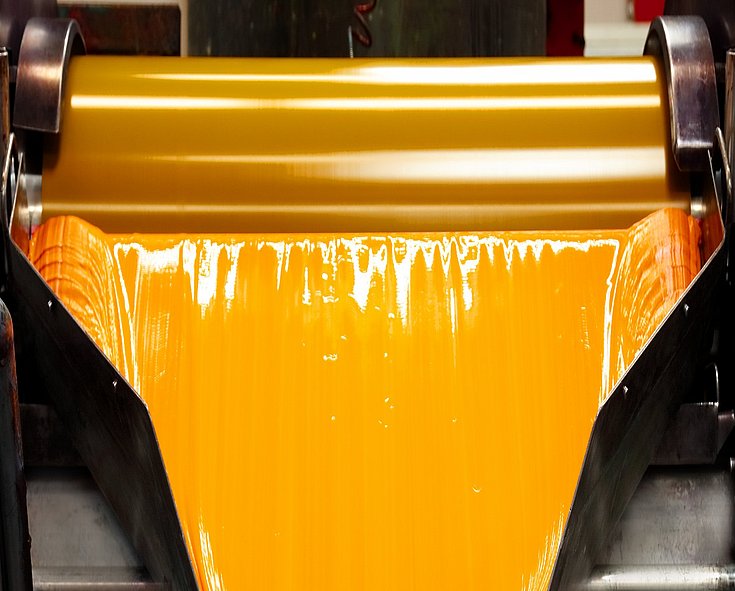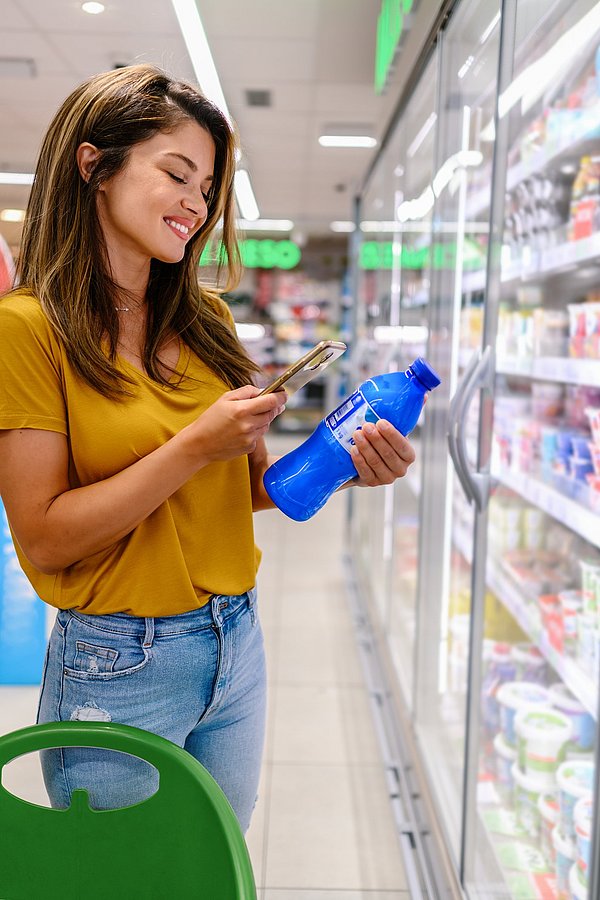
Colors are passion, emotions and personality. At Siegwerk, inks and coatings are our specialty and we use color to bring the packaging and products of our customers to life.

Inks and coatings play an essential role in the realization of a Circular Economy in the packaging industry. Due to their technical functionalities they concretely enable the implementation of all three levers in terms of reduction, reuse and recycling of packaging.
Innovative inks and coatings offer the opportunity to close technical performance gaps of certain materials, such as paper and mono-plastic, improving their properties and therefore allowing their use for new applications. Inks and coatings enable e.g. the switch from multi-material plastic to mono-material plastic packaging while maintaining the functionality of the original packaging such as the protection of food and thereby create recyclability of packaging components.
For reusable packaging different ink properties are required for each use cycle. While e.g. the best-before date might have to change with each use, the brand design should stay on the packaging across all use cycles. Here, inks and coatings play a crucial role to provide reusability with maximum cost-efficiency to achieve economies of scale.
Moreover, inks and coatings are critically important for the recyclability of packaging. This requires solutions that do not hinder the recycling process and are e.g. PVC-free. In this context, deinking of packaging is a major topic. The right selection of inks and coatings ensures that only product residues are removed during the washing process, but no color is discharged into the washing water. Good deinking properties of inks and coatings improve the recyclability of packaging and therefore support the transformation of packaging waste into a new valuable resource according to a Circular Economy.
Today, Siegwerk already has a strong track record in customer-specific ink development projects for circular packaging solutions that either increase recyclability, allow composting or reduce the need for plastic use and other non-renewable raw materials.
A Circular Economy creates economic development independent of finite resources. To realize a Circular Economy, packaging needs to be rethought based on “Design 4 Less” and “Design 4 Recycling” solutions. For the packaging industry this leads to the following main levers:
DESIGN 4 LESS means meeting the packaging demand with using less packaging by eliminating packaging components, using less plastic by substituting it with renewable materials such as paper and introducing new business models for reuse concepts. With wrapper-less ice cream, paper-packed snack bars, re-fillable packs or transparent mono-plastic packaging there are already some greatly improved packaging solutions on the market.
DESIGN 4 RECYCLING aims at increasing the recyclability of packaging by rethinking its design, e.g. by moving from multi-material to mono-plastic packaging or phasing out of materials like PVC. Going forward, reducing and recycling of packaging will play a tremendously important role.

means that the amount of resources, and in particular finite resources, entering the cycle is being reduced by waiving unnecessary packaging parts, like e.g. overpacks solely for marketing purposes, or substituting oil-based plastic through renewable resources, such as paper.
means that all packaging entering the cycle is being used multiple times before disposal in order to utilize the resources to the fullest maximum of all used resources.
means that packaging waste is converted into reusable material through respective sorting and recycling technologies (mechanical and chemical). In a Circular Economy, recycling is the only acceptable scenario for disposal, even though the need for any disposal should be prevented in the first place.